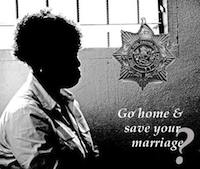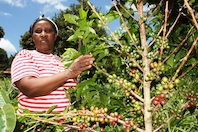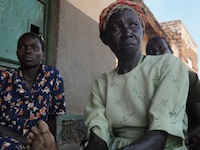By Ignatius Banda
Tasha Ncube* has no kind words for the police. Early last month, the 31-year-old mother of two was beaten several times by her husband over what she says were small arguments. This was the first time in a marriage that has gone for years without any such occurrence.
"I began suspecting he must be seeing someone as I have heard such stories before about men with ‘small houses’ suddenly being moody," Ncube said. Small house is a local euphemism for a lover.
"When I confronted him he went mad and he beat me up. I reported him to the police."
But Ncube did not get the response she expected. "They said I should go back home and ask relatives to mediate as they were getting many reports from women who withdrew charges after the husband apologised. I was so angry I did not know what to say..."
Like many other women, she returned home to continue life with her abusive husband.
Officers 'interpreting' law
Ncube’s case is typical example of what gender activists say is a glaring gap between the enforcement and interpretation of legal provisions that seek to protect women from gender-based violence.
Gender activists and the gender ministry made groundbreaking strides over several years to push GBV legislation through Parliament. The Domestic Violence Act was finally passed by Parliament in 2007 amidst much celebration.
But Irene Zwelibanzi, an activist who has spent several nights in police cells after Women of Zimbabwe Arise (WOZA) organised demonstrations in the streets of Bulawayo says police attitudes towards women are yet to change.
"Some male police officers forget that when they are at work they are professionals but they still behave like uneducated men in the street and demean women who seek their protection," Zwelibanzi complained.
"This is not helping the fight we are waging for our rights as we are also now fighting to change the attitudes of the police themselves," she said.
Police: 'We do take it seriously'
The Zimbabwe Republic Police maintains that it has done much to sensitise members of the force on dealing with domestic violence cases and how to handle reports, especially from battered women.
The Domestic Violence Act stipulates that domestic violence is punishable by up to 10 years. This is the reason some police officers give for not taking all reports seriously, claiming that some wives do not want to see their husbands locked up for that long.
"Sometimes we get wives reporting their husbands for beating them up, but after locking him up, the wife comes only a few minutes later to say she has forgiven him and wants to withdraw the charges," said an officer who spoke on condition of anonymity.
"It’s not that we do no take these reports seriously, but sometimes it helps that these disputes do not reach the police station if marriages are to be saved," the officer reasoned.
"I think it is generally about gender relations -- how sensitive men are to women’s experiences of domestic violence, particularly women they don’t know," says Amanda Atwood of kubatana.net, a forum for Zimbabwe online activists and bloggers.
"How comfortable are women generally discussing issues of domestic violence with strangers, particularly men?" Atwood reflected.
Meanwhile, according to research conducted this year by the Zimbabwe Women Resource Centre and Network, domestic violence accounted for more than 60 percent of murder cases in Harare’s High Court, providing insight into the gravity of the situation.
Raising profile of GBV
There has been a push to give the issue prominence in the constitution making process with advocacy based on evidence of the high cost of GBV to the nation. In particular, medical costs, justice, transport, school fees, loss of working hours, treatment of sexually-transmitted infections, HIV and loss of household income have been cited.
Efforts to address GBV at community level are generally dismissed as ineffective by women like Ncube who say the non-involvement of law enforcement officers means such initiatives are ignored by men.
As part of a Gender Based Violence Strategy and Implementation Plan, the Gender Ministry, together with the United Nations Children’s Fund (UNICEF), has been conducting training of community-based counsellors.
Rejoice Timire, executive director of the Disabled Women Support Organisation, says women living with disability have not been spared either. Timire called for the needs of this oft forgotten group of women to be addressed during the 16 Days of Activism Against Gender Based Violence.
"There is high unemployment and economic dependency and this has left the women with disability more vulnerable to abuse," Timire told IPS.
Ncube is still hurting from the double abuse she suffered – at the hands of her husband and the police who refused to act. "I obviously feel bad about having reported my husband. Not because I reported him but because the police refuse to do anything about it," she said.
*Names have been changed.
source: ips news




